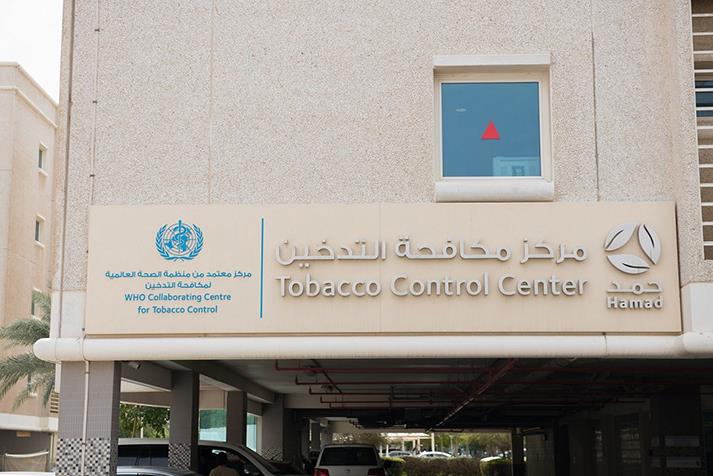
Smoking Cessation Services At PHCC Prove Highly Effective: Study
Doha, Qatar: Smoking cessation services offered by the Primary Health Care Corporation (PHCC) have shown remarkable success, according to a recent study. The study revealed that a substantial majority of individuals who sought assistance from PHCC health centres to quit smoking have successfully kicked the habit.
The study“Investigating the socio-demographic characteristics and smoking cessation incidence among smokers accessing smoking cessation services in primary care settings of Qatar, a Historical Cohort Study,” published on SpringerLink platform has examined the effectiveness of the smoking cessation programme adopted by PHCC.
The study shows that smoking cessation services at PHCC work well in both the short and long term. Young people, Arabs, and smokers with higher incomes and education levels were found as the high-risk group. The study has also suggested that to reach more people locally, PHCC should advertise its services more widely.
The study was conducted by Abduljaleel Abdullatif Zainel, Hanan Al Mujalli, Hafiz Ahmed E Mohamed, Ahmed Sameer Al Nuaimi, and Muslim Abbas Syed from the Department of Clinical Research, PHCC, along with Ameena Ibrahim Yfakhroo from the Department of Operations, PHCC.
The main goal of the study is to examine the background, characteristics, and how often people stop smoking after getting help from smoking cessation services in Qatar's primary healthcare centers. It also looks at how many people start smoking again after they've initially quit.
In this cohort study, a substantial sample of 490 participants was recruited through simple random sampling from those who attended the smoking cessation clinics in PHCC, providing a comprehensive view of smoking cessation outcomes.
The study found that initially 63.5% of participants successfully quit smoking after receiving smoking cessation services. Significant differences were observed in smoking cessation rates based on participants' nationality and educational level. However, 23.3% of those who initially quit smoking experienced a relapse and resumed smoking within 6 months of completing the cessation programme. This relapse rate increased over time to 38.7%, 47.2%, and 51.1% at 12, 24, and 36 months respectively. Ultimately, after 42 months, 45.8% of participants maintained their non-smoking status.
Among those recruited in the study, 43% of participants were within the range of 30–39 years of age. It was followed by the 40–49 years of age group with 28%. Most participants (90.2%) were males and had a smoking history of more than 10 years. A majority of 96.3% were cigarette smokers and 19.85 were Shisha smokers.
Globally, smoking and its associated health implications have been a major public health concern and according to the World Health Organization there are 1.3 billion tobacco consumers worldwide which causes 8 million deaths annually.
In Qatar, the overall prevalence of smoking among the population surveyed in the STEP-wise survey was 16.4%. The rate of smoking among men (31.9 %) is much higher than among women (1.2%). The Smoking Cessation Clinics at PHCC are managed by physicians who are trained and certified in treating tobacco dependence. They offer effective counselling and prescribe medications to assist individuals in quitting tobacco use successfully. Access to these clinics is available through physician referral or by calling 107 directly to schedule an appointment.

Legal Disclaimer:
MENAFN provides the
information “as is” without warranty of any kind. We do not accept
any responsibility or liability for the accuracy, content, images,
videos, licenses, completeness, legality, or reliability of the information
contained in this article. If you have any complaints or copyright
issues related to this article, kindly contact the provider above.
Most popular stories
Market Research

- Psy Protocol Testnet Combines Internet Scale And Speed With Bitcoin-Level Security
- Dupoin Reports Global Growth, Regulatory Coverage, And User Experience Insights
- Luminadata Unveils GAAP & SOX-Trained AI Agents Achieving 99.8% Reconciliation Accuracy
- Mutuum Finance (MUTM) New Crypto Coin Eyes Next Price Increase As Phase 6 Reaches 50% Sold
- 0G Labs Launches Aristotle Mainnet With Largest Day-One Ecosystem For Decentralized AI
- B2BROKER Taps Finery Markets To Power Institutional Crypto OTC On B2TRADER




















Comments
No comment